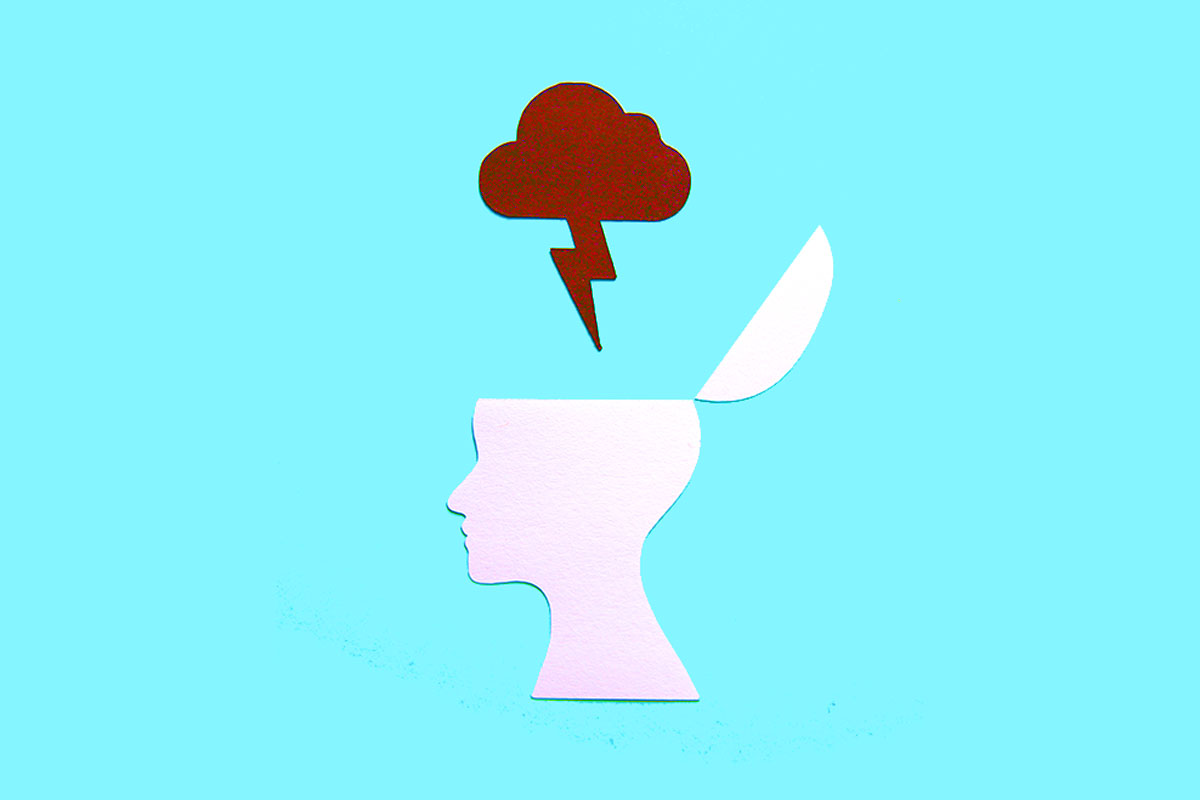I was diagnosed with a Scary-Sounding Mental Illness™ several years ago. When I got the diagnosis, I was incredibly upset and chewed out the psychiatrist. My symptoms didn’t neatly fit the criteria for the diagnosis, and I was concerned that if my medical records were compromised, the stigma associated with the diagnosis could negatively impact my ability to find work or go back to school.
My psychiatrist admitted that my symptoms better fit a diagnosis listed in the 4th edition of the Diagnostics and Statistics Manual (DSM), the official manual used to diagnose mental illnesses in the United States, but that diagnosis was removed and not listed in the updated DSM-V. Additionally, I was insured through Medicaid at the time, and she wanted to ensure that the state would pay for the ridiculously expensive medication that would turn off the “do extremely self-destructive things right now” switch in my brain.
So I was effectively stuck with a diagnosis with a considerable amount of negative baggage that was the least ill-fitting descriptor of my symptoms.
This whole experience shows just how much of a dumpster fire mental health care in the United States is currently. There is a severe shortage of clinicians, who are all using a diagnostic tome best described as “a bunch of smart people with a lot of advanced degrees throwing a bunch shit at the wall and seeing what sticks” in order to prescribe medications that cost more than my rent.
Jonathan Metzl, a cultural historian and psychiatrist, researches and writes extensively on the history, social, and cultural factors that influence mental health treatment in the US. His 2010 book, The Protest Psychosis: How Schizophrenia Became a Black Disease, chronicles the role that institutional racism may have had on the change in diagnostic criteria for schizophrenia. Metzl shows, in depressing and painstaking detail, how Black men institutionalized at the Ionia State Hospital in Michigan had their diagnoses changed to schizophrenia starting in the ‘60s, despite having no changes in their symptoms, and how staff considered associations with civil rights and Black Power groups as a sign of mental illness.
It’s a stark reminder that whenever there is public discourse about mental illness, we need to consider how we are working within a field and framework that has not addressed how institutional biases have harmed patients.
There has been intensive speculation as to whether mental illness may have been a contributing factor in any of the recent anti-Semitic hate crimes in New York, including the horrifying machete attack in Monsey. Suspect Grafton Thomas’ lawyer has stated that his client has depression and psychosis, and that his journals filled with anti-Semitic writings — and his internet search history filled with queries such as “Why did Hitler hate Jews” and “German Jewish temples near me” — are signs of mental illness, not anti-Semitism.
This is a horrible argument.
Hatred of Jews is not a diagnostic criteria for mental illness. While obsessive behaviors and hyperfixations can be symptoms of mental illness, if someone is excessively fixated on harming Jewish people, that means they are anti-Semitic. Even if mental illness influenced how Thomas acted on his anti-Semitism, we have to consider the fact that many other perpetrators of anti-Semitic violence have not been mentally ill. The impulse, even in his case, came from his anti-Semitism, not mental illness.
Modern anti-Semitism is very much a conspiracy theory that labels Jewish people as the masterminds of whatever a community labels their greatest evil: whether that’s the crucifixion of Christ, the death of children, the destruction of “the white race,” communism, capitalism, pornography, imperialism, gentrification, police violence, or literally anything else on earth. This kind of conspiratorial thinking about Jewish people can be found in many groups and across the ideological spectrum and among many prominent figures that haven’t been diagnosed with a mental illness. When an individual person harms Jewish people while expressing these conspiratorial beliefs, they are expressing a macro-level hatred on a micro-level scale.
Every mental health clinic, private counseling practice, inpatient psychiatric treatment center, and social service agency, including the one I am currently interning at, has policies requiring all clients and staff to treat each other with respect and refrain from comments or actions that harm marginalized groups, because open expressions of hatred and bigotry impede everyone’s ability to receive the treatments and services they need in a safe environment. When we claim that violent anti-Semitism is directly caused by mental illness, we perpetuate the ableist assumption that all people diagnosed with mental illness do not understand right from wrong.
I’m “crazy” enough to have had a full dance card of social workers, case managers, and psychiatrists as part of my treatment for almost a decade, but never acted out more violently than crumpling up a worksheet at a therapist and throwing it at her. Instead of repeatedly making racist or anti-Semitic comments, I devote a considerable amount of my time to fighting racism and advocating for stronger Jewish communities. Why is it that when we talk about anti-Semitism and mental illness, we focus on suspects who allegedly committed violent hate crimes and not the many amazing Jewish activists who have shared how living with mental illness has impacted them?
The broader problem is that we’re all desperate for some Grand Unifying Theory to explain the terrifying increase of anti-Semitic hate crimes in New York and across the country. Mental illness, statewide criminal justice reforms, gun control laws, gentrification, Bill de Blasio, Al Sharpton, Donald Trump, Louis Farrakhan, the Nation of Islam, Black Hebrew Israelites, the BDS movement, and even Kimberle Crenshaw’s theory of intersectionality have all been blamed for the increase in anti-Semitic hate crimes. The difficult truth is that there isn’t one major motivating or unifying factor to explain it, except maybe “a lot of people from all kinds of backgrounds really hate Jews” and “public officials are pretty indifferent to Jews being harassed and attacked if they are Jewish in ‘weird’ ways we don’t understand.”
That’s where we should start if we truly want to address the root causes of these ghastly and horrific hate crimes. Collect data on the prevalence of anti-Semitic beliefs in the tri-state area. Develop programs devoted to educating all community members, especially children, about anti-Semitism. Create community safety plans that don’t start and stop at “more cops in neighborhoods.” Demand greater transparency from law enforcement agencies to release more data on hate crimes and to have robust internal policies that ensure that police officers who make racist or anti-Semitic comments themselves are removed from service and never work in law enforcement again.
And yes, we do need to make significant investments to ensure that mental health treatment is more affordable and accessible in the US. But we should refrain from speculations or generalizations around alleged assailants’ mental health and avoid the “hatred versus mental illness” false binary. Sometimes people diagnosed with mental illness also harbor cruel beliefs about other groups of people, and sometimes those beliefs don’t remain in a journal or an internet search, but are manifested in a horrific machete attack.
We must fight anti-Semitism and advocate for a functional mental healthcare system, but we cannot mistake advocating for the latter with fixing the root causes of the former.
Image by Paula Daniëlse/Getty Images



